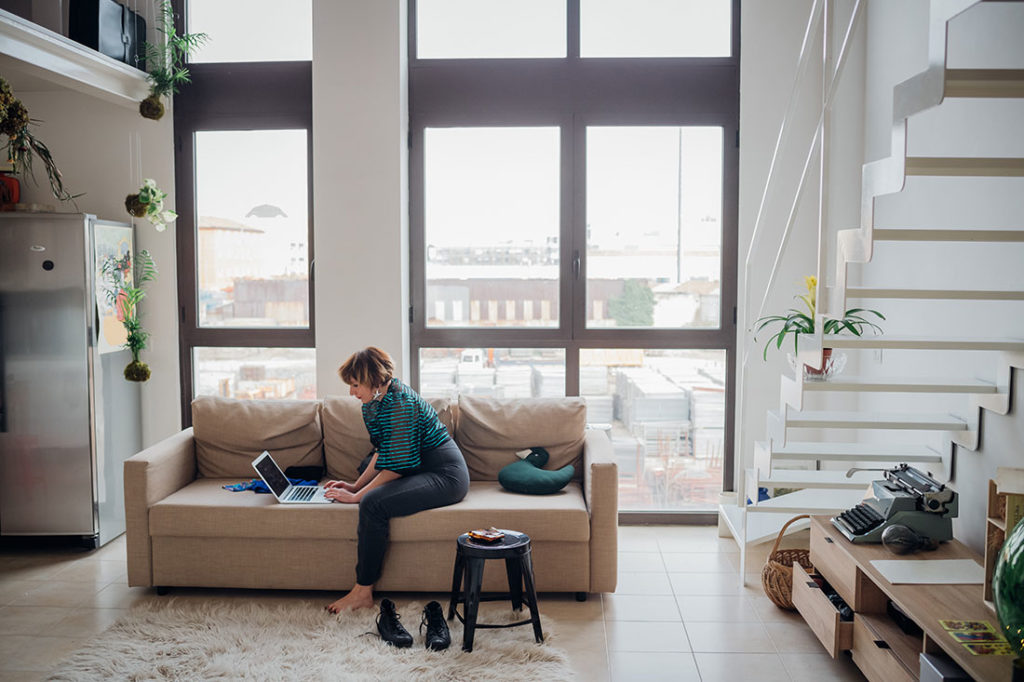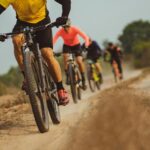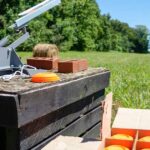We’re a year into the COVID-19 pandemic, and somehow we don’t have a word yet for that body motion we all make when we climb out of the car, walk a few steps across the parking lot, check our ears to make sure a mask is strapped to them… and throw our hands up in annoyance when we discover we forgot it, again. We turn around and make a frustrated march back to the car, where we find one mask stuffed in the center console, another hanging from the rearview mirror and three more scattered under the seat.
We need a word for that despondent reaction. I propose demaskulated, and I welcome your suggestions.
I was thinking about all the places I’ve been demaskulated as I looked back at the Year of Coronavirus. The shutdown started one year ago this week, and I’ve been examining how life has changed, how we all endured it, and what’s going to happen next.
Starting last March, my life was tipped upside down, and everything fell out of it onto the ground, like when I empty my backpack after a hike. The mess was giant, and at times embarrassing. It’s not so much that the ground was covered in things I didn’t need; it’s that I had too much of some things, and they were too heavy to carry.
Now was a chance to ditch what I don’t need. As I thought about what I would put back in and what I would leave out, one word kept coming back to me: Balance. I will look back on The Year of Coronavirus, and whatever happens next, as a time of wrestling to find balance.
Finding Balance in Measuring Success
Like many, if not most—if not all—solopreneurs, I struggled with lost work in 2020. Others had it much worse, of course, but I took a big hit. After the shutdown started, one of my clients closed and two others froze freelance assignments. For the first several months, none of my travel/adventure clients would assign me a story, and I wouldn’t have taken one anyway.
The appetite for breaking news about the pandemic was insatiable. But I make my living writing feature stories and essays, not breaking news. It was like I owned a hamburger joint in a vegetarian commune. I eventually settled on a sweet spot of writing about life in the pandemic, not the pandemic itself.
Although the quantity of my assignments remained down, the quality was high. Counting only stories I sod after the pandemic started, I landed a series of life-enriching assignments. I went on three multi-day canoe trips. I covered bull-riding on an aircraft carrier in the middle of a pandemic, took my family to Colorado for a week on a family travel assignment, trained to become an average high school athlete at 48, completed 5,072 burpees in January with 400 friends, etc.
I confronted the delicate balance of every job, ever: We want to have fulfilling work that pays well. A fulfilling career is a non-stop maneuvering of the levers of those two factors.
If you had asked me in May how my business was handling the coronavirus, I would have said “badly, period, full stop.” I was down on quantity and quality. By the end of the year, I had rallied, at least in terms of quality. The bottom line was still down. But the assignments would have improved my life in any year, and did doubly so in 2020.
Finding Balance Between Controlling What I Can and Letting Go of What I Can’t
Like many, if not most—if not all—solopreneurs, I was frustrated because much of what caused that drop in income was out of my control. But not all of it was. I controlled my decisions, and I tried to make good ones. Sometimes I did. Sometimes I didn’t.
As my normal sources of work dried up, I opted not to flood new markets with pitches because…
- Everybody else would be doing that.
- My pitches would carry a whiff of panic that I didn’t like.
- I don’t like that as a business model when clients are buying stories, so doing it when they aren’t makes zero sense.
- Doing that might do more harm than good.
Most editors could not assign stories, so pitching them seemed like being that annoying customer at the airport who pesters the gate agent about when the plane will leave when that agent has repeatedly announced they don’t know. Being aggressive is usually a good thing. Being aggressive while disregarding the strains my clients are under is not.
NHL Hall of Famer Wayne Gretzky is famous for saying you miss 100 percent of the shots you don’t take, and that’s a great mindset when deciding whether to pitch an idea. But shots don’t matter if the game’s over, the fans are gone and the nets have been put away.
My reasoning for not over-pitching was sound. But I took it too far. When the market started to rebound, if I had ideas I wasn’t 100 percent sure about, I held off. That’s among my worst habits: I make other people’s decisions for them instead of pitching and letting them decide. Sorry, Wayne.
Finding Balance Between Caution and Fear
Like many, if not most—if not all—solopreneurs, I battled anxiety in 2020. I’m still battling it. On top of anxiety related to the state of the world, I faced particularly acute anxiety centered around travel. My best, favorite and most lucrative work requires travel.
For months, I was content to stay close to home. Once travel restrictions eased, I faced a series of questions for which there were no clear answers:
- Should I be traveling at all?
- If so, how should I go?
- When should I go?
- Is where I’m going safe?
For the first time in my career, I canceled a trip for no reason other than I didn’t want to go. The neighbor of a friend had volunteered to drive my friends and I across Missouri so we could ride our bikes back. Even though he was willing to make the drive, and my friends were willing to make the trip, I couldn’t get myself to be comfortable with going.
I had no coronavirus symptoms. I had not been exposed to anybody who had the virus. I was not worried the driver or my friends would give it to me. I had nothing to worry about in any rational sense. But I had a latent and powerful sense of fear. For the sake of my own mental health, I bagged the trip just a few days before we were supposed to leave.
I knew then that my balance was out of whack; it took me a while to figure out how to realign it. I started to ask myself: What do you want to think about today? I stopped reading websites that carried alarmist headlines. I cut back on social media. I learned to ignore online scolds who trafficked in fear mongering as well as conspiracy theorists who said the pandemic was a hoax.
This isn’t about denialism. This is about moderation. This is about living with the pandemic but not being consumed by it. This is about being cautious but not living in fear. This is about balance.
Photo by Eugenio Marongiu/Shutterstock










